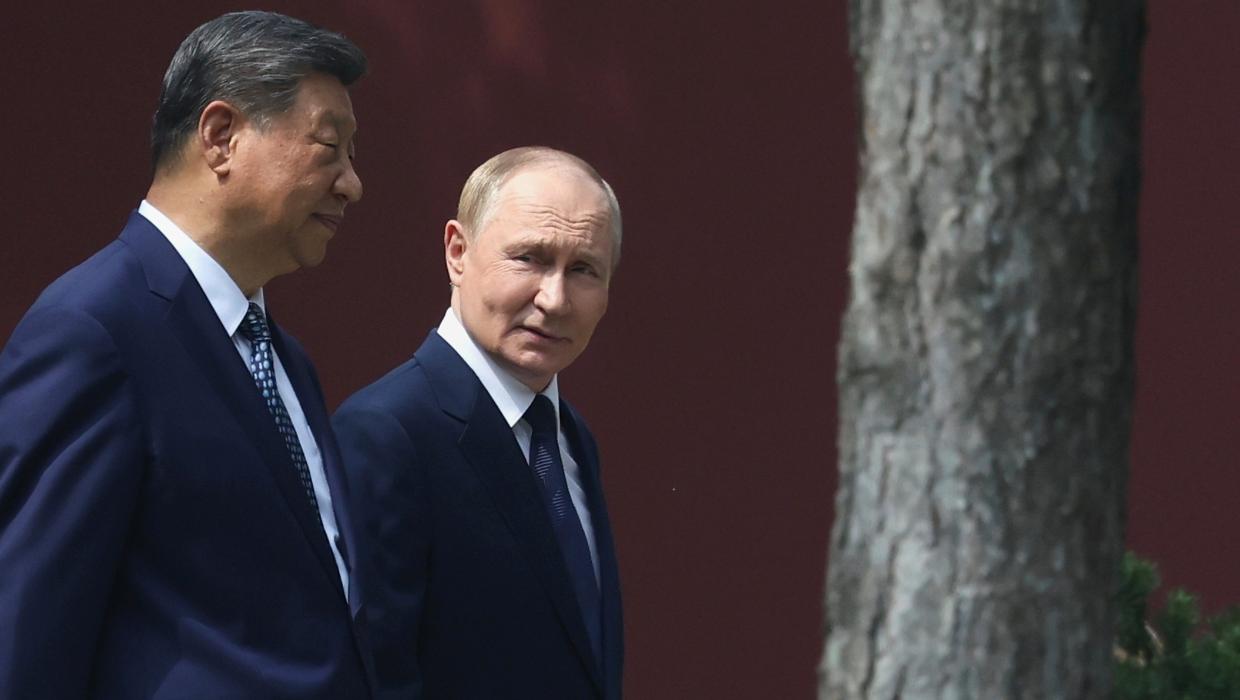Science
Putin’s Immortality Aspirations: Can Science Deliver?

A recent incident involving a hot microphone has brought to light Russian President Vladimir Putin‘s intriguing aspirations regarding human immortality. During a private conversation, Putin expressed his hopes that advances in science could significantly extend human life, stirring discussions about the potential implications of such ambitions.
With access to vast resources and the brightest scientific minds, leaders like Putin are positioned uniquely to influence the future of life expectancy. The global race toward longevity is not limited to Russia; nations such as the United States and China are also investing heavily in biotechnology and related fields.
Global Efforts Toward Longevity
Countries around the world are making significant strides in research aimed at extending human lifespan. In the United States, for instance, federal funding for health and biotechnology research reached approximately $50 billion in 2023, with a focus on diseases of aging and regenerative medicine. This investment aims to unlock the biological secrets that could lead to extended healthspan and lifespan.
The World Health Organization has also emphasized the importance of health promotion and disease prevention as key components of increasing longevity. Their initiatives focus on improving healthcare systems and addressing lifestyle factors that contribute to aging populations.
Meanwhile, Chinese government-backed initiatives have resulted in breakthroughs in genetic therapies that target aging at its source. Research from institutions such as Peking University has shown promise in reversing aspects of cellular aging, with trials expected to expand in the coming years.
Ethical Considerations and Potential Challenges
While the scientific community is excited about the potential for extended life, there are ethical considerations that must be addressed. Questions about access to such technologies and the societal implications of a significant increase in the human lifespan are at the forefront of discussions.
As leaders like Putin pursue these ambitions, disparities in healthcare access could widen, further complicating the global landscape. The potential for a world where only a select few benefit from life-extending technologies poses a moral dilemma that requires urgent attention.
In addition, the environmental impact of a growing population living longer must be considered. As life expectancy increases, so too does the demand for resources, potentially exacerbating issues such as climate change and global food security.
Understanding the implications of longevity research is crucial, especially as initiatives gather momentum. The scientific community must engage with policymakers and ethicists to ensure that advancements in this field benefit humanity as a whole, rather than a privileged few.
Amid these developments, Putin’s comments serve as a reminder of the power dynamics at play in the realm of biotechnology. As nations compete to harness the secrets of longevity, collaboration may be just as important as competition.
As the world moves toward 2030 and beyond, the discourse surrounding human immortality will likely intensify. The outcomes of these scientific pursuits could reshape societies and redefine what it means to grow old. Addressing the challenges and opportunities ahead will require a concerted effort from governments, scientists, and communities worldwide.
-

 World2 weeks ago
World2 weeks agoPrivate Funeral Held for Dean Field and His Three Children
-

 Top Stories3 weeks ago
Top Stories3 weeks agoFuneral Planned for Field Siblings After Tragic House Fire
-

 Sports3 months ago
Sports3 months agoNetball New Zealand Stands Down Dame Noeline Taurua for Series
-

 Entertainment3 months ago
Entertainment3 months agoTributes Pour In for Lachlan Rofe, Reality Star, Dead at 47
-

 Entertainment2 months ago
Entertainment2 months agoNew ‘Maverick’ Chaser Joins Beat the Chasers Season Finale
-

 Sports3 months ago
Sports3 months agoSilver Ferns Legend Laura Langman Criticizes Team’s Attitude
-

 Sports1 month ago
Sports1 month agoEli Katoa Rushed to Hospital After Sideline Incident During Match
-

 World3 weeks ago
World3 weeks agoInvestigation Underway in Tragic Sanson House Fire Involving Family
-

 Politics2 months ago
Politics2 months agoNetball NZ Calls for Respect Amid Dame Taurua’s Standoff
-

 Top Stories3 weeks ago
Top Stories3 weeks agoShock and Grief Follow Tragic Family Deaths in New Zealand
-

 Entertainment3 months ago
Entertainment3 months agoKhloe Kardashian Embraces Innovative Stem Cell Therapy in Mexico
-

 World4 months ago
World4 months agoPolice Arrest Multiple Individuals During Funeral for Zain Taikato-Fox





















